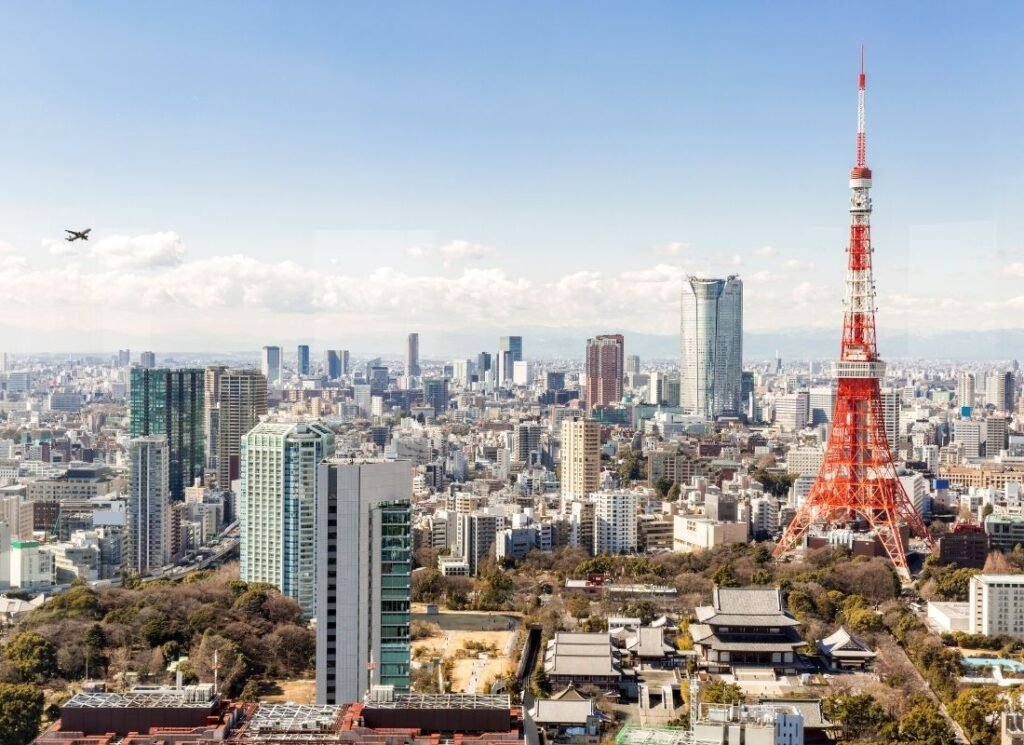Japan has signed agreements with Bangladesh for Specified Skilled Worker (SSW) visas, making it easier for Bangladeshi workers to enter construction, caregiving, manufacturing, and food service sectors. If you work in Japan for 5 years or more, you can apply for Permanent Residency (PR), allowing you to stay in Japan without needing a visa renewal. This can lead to a more stable and prosperous life in Japan. Japan faces a labor shortage, especially in fields like IT, engineering, healthcare, hospitality, and skilled trades. This means there are many job opportunities for foreign workers, making it easier to find employment.
Dreaming of Working in Japan? Here’s How to Make It Happen!
For many Bangladeshi citizens, Japan represents a land of opportunity, innovation, and career growth. Whether you’ve always admired Japanese culture or are drawn to its booming job market, the idea of working in Japan can feel like a dream come true. But how do you turn that dream into reality? The answer lies in obtaining a Japan work visa.
In this guide, we’ll walk you through the step-by-step process of securing a Japan work visa as a Bangladesh passport holder, including the paperwork, timeframes, and tips that will help you along the way.

The Path to Japan: Understanding the Work Visa Process
When I first heard about the opportunity to work in Japan, I was filled with excitement — but also anxiety. How would I ever navigate the complex visa process? If you’re feeling the same way, don’t worry. It’s a process that many Bangladeshi citizens have successfully completed, and you can too! Here’s how to get started:
Step 1: Finding a Job in Japan
The first step in your journey is securing a job offer from a Japanese employer. Without a job, obtaining a work visa is not possible. The good news is that Japan is known for its high demand for skilled workers across various sectors, including IT, engineering, hospitality, and healthcare.
If you’re an engineer, teacher, or skilled worker, there are numerous opportunities available. Take time to research job openings and apply through job boards, recruitment agencies, or even LinkedIn.
Once you receive an offer, your employer will play a vital role in the next steps of the visa process.
Step 2: The Certificate of Eligibility (COE) – Your Key to Japan
After securing a job, your employer will apply for a Certificate of Eligibility (COE) on your behalf. This is one of the most crucial steps in the visa process. Think of the COE as your pre-approval to work in Japan. The Immigration Services Agency of Japan will review the COE application to ensure you meet the necessary qualifications for the job.
Documents needed for the COE:
- Your employment contract or job offer letter.
- Proof of your qualifications (degrees, certificates, experience).
- Company registration documents from your employer.
This part of the process typically takes 1 to 3 months, so be patient. Once approved, the COE will be sent to you.
Step 3: Applying for Your Work Visa in Bangladesh
With your Certificate of Eligibility in hand, the next step is to submit your work visa application to the Embassy of Japan in Bangladesh. Here’s what you’ll need for this:
- The original COE and a copy.
- A valid passport (make sure it’s not about to expire!).
- A completed visa application form (available on the embassy website).
- Passport-sized photographs (typically two).
- Any additional documents the embassy may require (for example, proof of financial stability).
The visa processing time usually takes about 1 to 2 weeks. If all goes well, your visa will be issued, and you’ll be one step closer to starting your career in Japan.
Step 4: Arriving in Japan and Getting Your Residence Card
Once your work visa is approved, you can finally board your flight to Japan! Upon arrival, immigration officers will issue you a Residence Card at the airport if you’re staying for more than 3 months. This card is essential because it’s proof of your legal status in Japan.
Don’t forget to register your address at the local city office within 14 days of arriving. This is also where you’ll update your address if you move.
Navigating the Types of Work Visas
Japan offers various types of work visas, depending on the job you’ll be doing. Here are a few common categories:
- Engineer/Specialist in Humanities/International Services: For professionals in IT, engineering, business, and translation.
- Skilled Labor: For chefs, construction workers, factory workers, and other skilled trades.
- Instructor Visa: For those teaching English or other subjects.
- Specified Skilled Worker (SSW): A visa designed for industries facing labor shortages, like nursing, hospitality, and agriculture.
Depending on your job, you’ll apply for the appropriate visa. Your employer will guide you through the process.

Challenges You Might Face – And How to Overcome Them
Let’s be honest — the visa process can feel overwhelming. But many Bangladeshis have walked this path successfully. Here are some challenges you might face and how to tackle them:
- Finding a Job: It can be tough to find the right employer, but don’t give up. Network, apply widely, and reach out to recruitment agencies. Japan’s demand for skilled workers is high!
- Visa Processing Delays: Sometimes, the COE or visa approval can take longer than expected. Keep in touch with your employer and the embassy for updates, and be patient.
- Language Barrier: While many Japanese companies require English-speaking employees, it’s still helpful to learn some Japanese. Even basic phrases can go a long way in making your transition smoother.
Final Thoughts – Your New Life in Japan Awaits
Getting a Japan work visa as a Bangladesh passport holder might seem like a daunting task, but with the right preparation and a little patience, it’s absolutely achievable. Japan offers a wealth of opportunities for those willing to work hard and adapt to a new culture.
Imagine yourself walking through the streets of Tokyo, enjoying sushi, and working in a thriving industry. It’s all within reach. Take the first step today — start looking for job opportunities, prepare your documents, and before you know it, you’ll be packing your bags for an exciting adventure in Japan!
Frequently Asked Questions
Q1: Can I apply for a Japan work visa without a job offer?
No, you need a job offer from a Japanese employer before you can apply for a work visa. The employer applies for your Certificate of Eligibility.
Q2: How long is a Japan work visa valid for?
A Japan work visa is typically valid for 1, 3, or 5 years. It can be renewed, but you’ll need to meet the requirements for extension.
Q3: Can I bring my family to Japan on a work visa?
Yes, you can bring your spouse and children under a dependent visa. They can live with you in Japan while you work.
Q4: What are the common job sectors for foreign workers in Japan?
Some popular sectors include IT, engineering, healthcare, hospitality, teaching, and manufacturing.
By following these steps, you’ll be well on your way to starting your career in Japan. Good luck with your visa application, and soon you’ll be calling Japan your second home!


